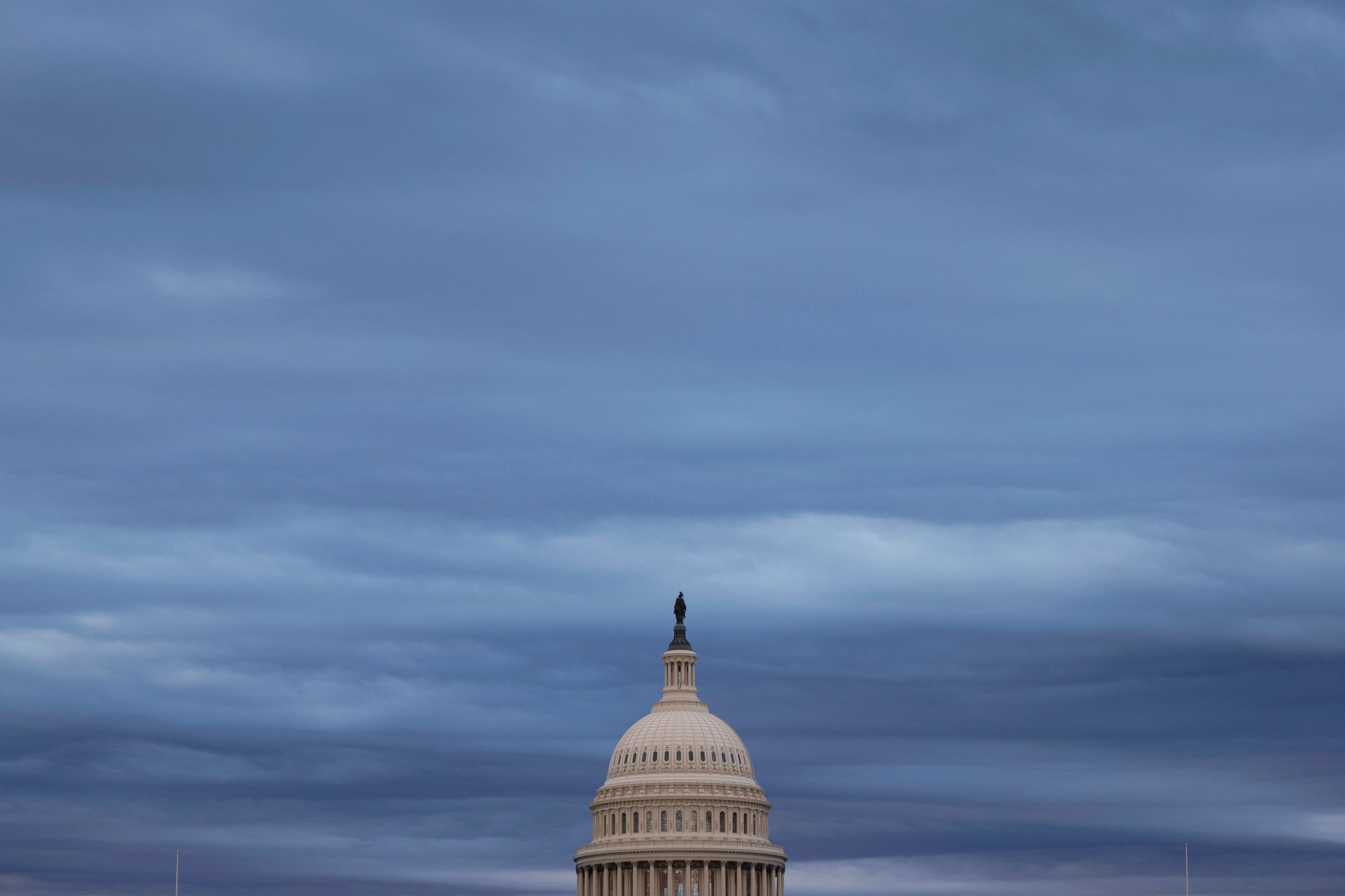The government shutdown could be over soon. But America's economy isn't done taking the hit
The shutdown will continue wreaking havoc on the economy, as over 700,000 government employees remain furloughed and federal agencies are shuttered

The U.S. Capitol, pictured during sunrise on November 10, 2025 on Capitol Hill in Washington, DC. (Tom Brenner/Getty Images)
The month-long government shutdown is on track to end sometime this week — but the U.S. economy isn't out of the woods yet.
Suggested Reading
On Sunday evening, the Senate advanced a deal that would reopen the government through Jan. 31 and unwind mass federal firings carried out by the Trump administration over the past month. It would also guarantee backpay to furloughed federal workers.
Related Content
The agreement, though, must still undergo two more votes ahead of reaching the House. Once the House approves the measure, it will get sent to President Donald Trump for his signature.
For the time being, the shutdown will continue wreaking havoc on the U.S. economy, as over 700,000 government employees remain furloughed and federal agencies remain shuttered.
"The current shutdown looks likely to have the greatest economic impact of any shutdown on record," Goldman Sachs economist Alec Philips wrote in a report published last week. Projections vary on the cost — and while most analysts do expect the economy to rebound, the Congressional Budget Office recently estimated up to $14 billion in economic activity could be permanently lost.
The state of air travel over the weekend deteriorated as thousands of flights were cancelled at major airports. The Federal Aviation Administration ordered airlines to slash flights by 4% at 40 U.S. airports starting Friday, in an attempt to relieve overburdened air traffic controllers working without pay.
On Monday morning, Trump warned air traffic controllers who either missed or skipped work to return immediately or they'll get their backpay "docked."
There has also been a turbulent battle around the federal food stamp program. Conflicting court decisions prompted confusion at the state and local level over whether the Supplemental Nutrition Assistance Program will be funded either partially or in full. One in eight Americans receive weekly benefits under the program.
The Trump administration moved to withhold SNAP benefits, arguing it had exhausted all its funding to do so despite having a sizable emergency reserve in place. But a federal appeals court ruled on Sunday that it must fully finance the program. Under the Senate deal, the federal SNAP funding will be restored through the end of January.
